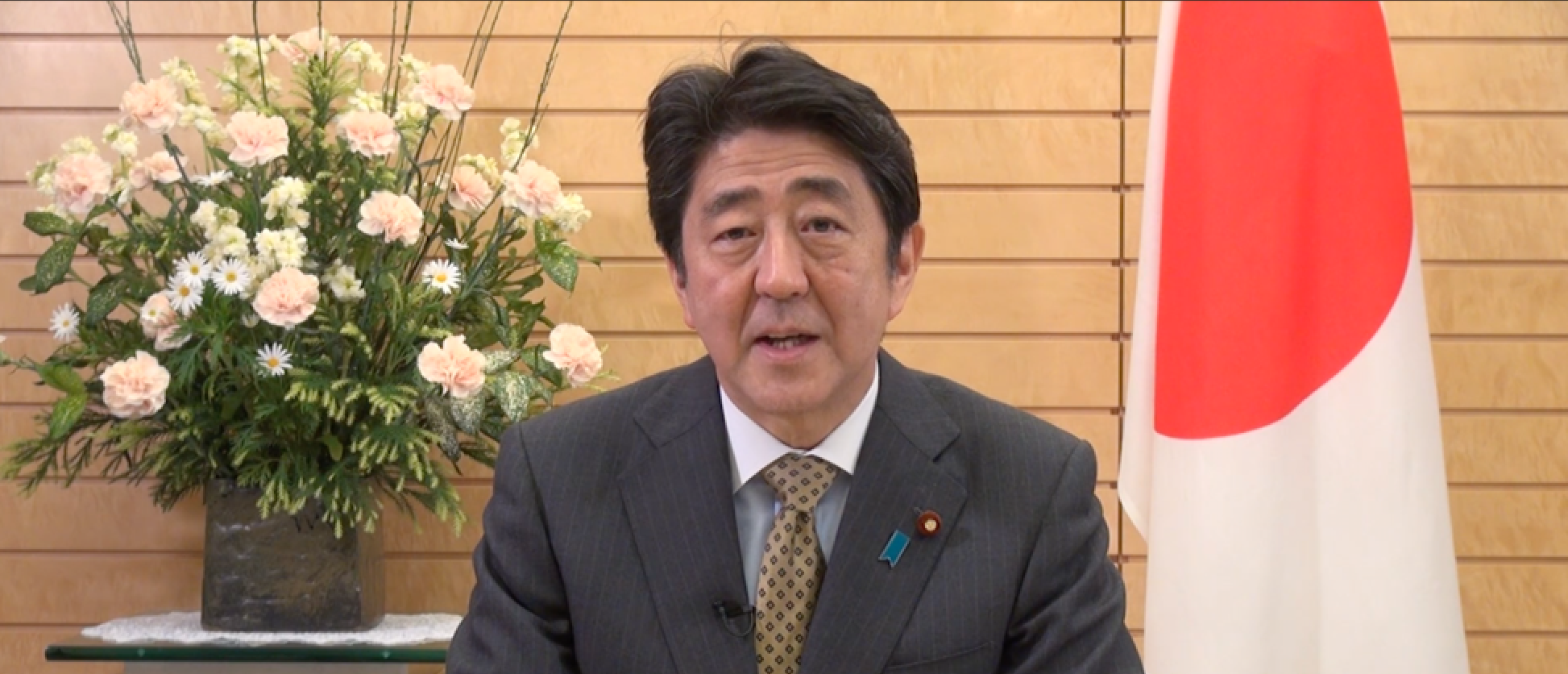
by Editor | Nov 21, 2021 | News
Prime Minister Shinzo Abe, recipient of the World Leader for Peace and Security Award 2015 and distinguished contributor to the book Remaking the World – Toward an Age of Global Enlightenment, will speak at the Symposium “The Framework for Global Law and Accord on AI and Digital” on Global Cybersecurity Day.
8:00 am – 11:00 am (EST), 14:00 – 17:00 (CET), December 12, 2021
During September 16-18, 2020, the Boston Global Forum (BGF) – Club de Madrid (CdM) Policy Lab “Transatlantic Approaches on Digital Governance – A New Social Contract on Artificial Intelligence” announced, discussed, and called for applying the Social Contract for the AI Age. One year later, September 7-9, 2021 BGF-CdM Policy Lab “Fundamental Rights in AI & Digital Societies – Towards An International Accord” announced and discussed the Framework for AI International Accord and BGF-CdM established the Global Alliance for Digital Governance, which are fundamental to the AI World Society (AIWS). Both ideas and works are introduced in the book Remaking the World – Toward an Age of Global Enlightenment, a core of the United Nations Centennial Initiative. The Social Contract for the AI Age and the book were also recommended and discussed at the Annual Policy Dialog October 27-29, 2021, organized by CdM in partnership with the BGF.
BGF organizes the annual symposium “Global Law and Accord on AI and Digital” to discuss Framework for Global Law and Accord on AI and Digital.

by Editor | Nov 21, 2021 | News

“China’s influence in US politics has coincided with the industrialization of China, at the expense of a deindustrializing US. Global corporations, to which US politicians answer, fled high wages and environmental regulations in the US for low wages and lax environmental standards in China. Now, the US is paying the price and might not recover sufficiently to defend itself against China’s growing military. The strategic ambitions of one nation can and have upset the United Nations and the balance between powers. Now the Western world must understand the imminent threats from the hegemonic ambitions of China.”
Hierarchy exists in every segment of society. From politics, to unions, associations, corporations, and the military. Dr. Corr breaks them all down and provides readers with a sense of what the world could well face if we allow hierarchy to continue its historical development toward a global and illiberal hegemony. Be it in China, the United States, or the European Union, all are vying for global influence and the utilization of the United Nations structure to promote either the principles of human rights and democracy, or in the case of Beijing, the exact opposite. This clash between democracy and autocracy on a global level could turn to war.
Anders Corr is a member of the AI World Society Innovation Network (AIWS.net). He contributed to Boston Global Forum (BGF) in writing reports and speaking at Global Cybersecurity Day December 12, 2015 and other BGF events.
Link: https://lu.ma/anders-corr
To discuss with Anders Corr about the book, please send your comments to [email protected]
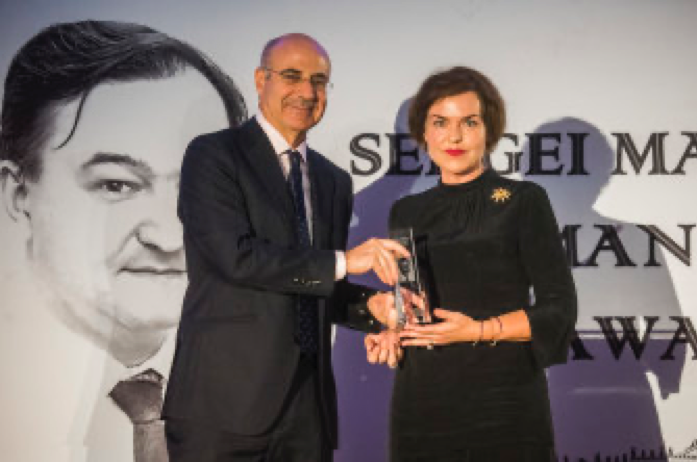
by Editor | Nov 21, 2021 | News
Bill Browder presented Labor Senator Kimberly Kitching with the Sergei Magnitsky Human Rights Award at the 2021 ceremony in London.
Boston Global Forum congratulates Senator Kitching on receiving this honor.
Kimberley spoke at the Democratic Alliance for Digital Governance on July 1, 2020, organized by Boston Global Forum and at the United Nations Centennial Roundtable, organized by AI World Society Network (AIWS.net). She called for legislations and regulations for transparency and accountability of governments in digital and AI.
She will speak about concepts for a powerful global mechanism to enforce Global Law on AI and Digital at the Symposium ““The Framework for Global Law and Accord on AI and Digital” on Global Cybersecurity Day.
8:00 am – 11:00 am (EST), 14:00 – 17:00 (CET), December 12, 2021.
The death of Sergei Magnitsky sparked a fierce global backlash. In the US, the Obama administration introduced legislation, commonly called the Magnitsky Act, to sanction the officials complicit in Magnitsky’s death.
The legislation has since been adopted by 32 other countries and recently been used against Chinese officials over the persecution of Uighur Muslims in Xinjiang.
Momentum in Australia to adopt a similar bill stalled until Kitching took up the cause following a Zoom meeting with Browder.
“Australia’s a country that’s completely on the other side of the world and for years I’d been trying to get things going, and I couldn’t get any traction at all,” Browder told the awards ceremony.
“And the moment I met Kimberley on Zoom, everything started to happen.
“She got the government to agree to do a Magnitsky Act and I understand that it will pass in the next two weeks and Australia will be the 34th country in the world to have a Magnitsky Act.
”We almost have the whole world covered.“
Kitching paid tribute to her fellow “Wolverines” – Liberal China-hawks Senator James Paterson and Assistant Defence Minister Andrew Hastie – as well as Foreign Minister Marise Payne and the former Labor MP Michael Danby, who had pushed for an Australian Magnitsky Act before his retirement in 2016.
“We’ve never given up on having this law, it’s been delightful to find allies across the aisle and in the crossbench,” she said.
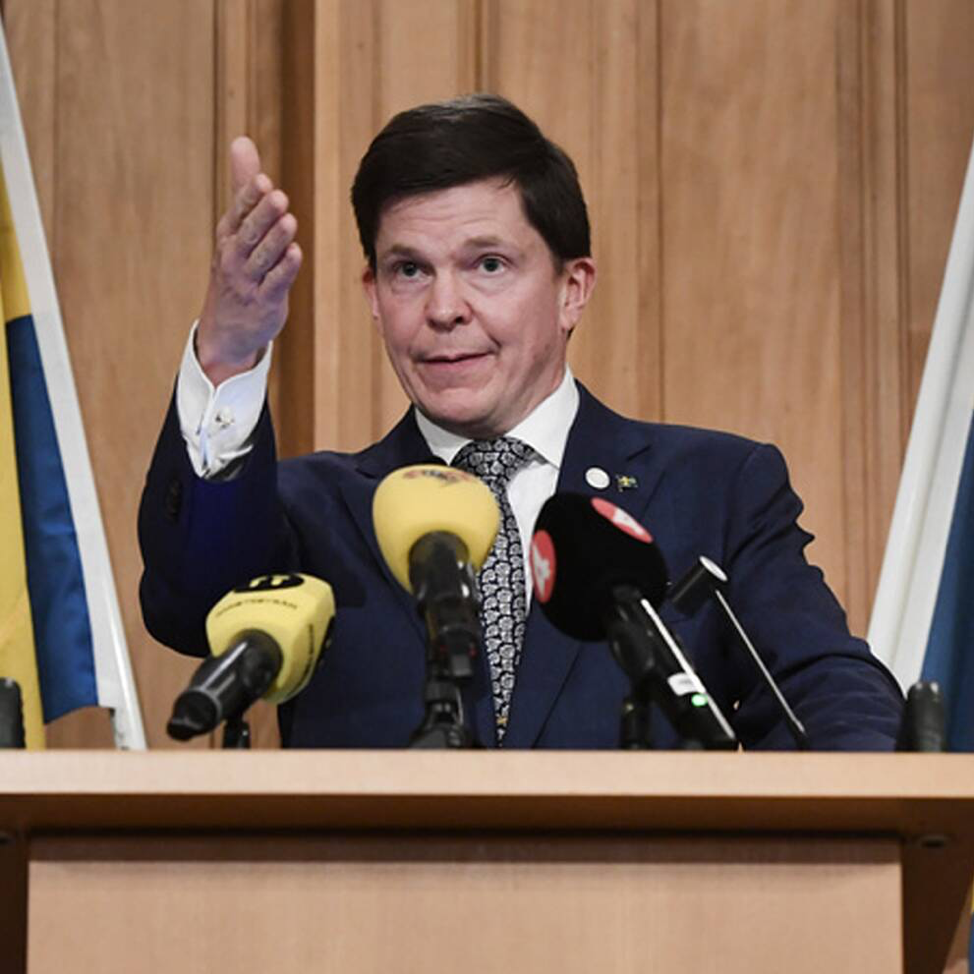
by Editor | Nov 21, 2021 | Event Updates
https://www.youtube.com/watch?v=ysGgsaKwG7E
The Speaker of Swedish Parliament Andreas Norlen will present the keynote speech at the Symposium “The Framework for Global Law and Accord on AI and Digital” of the annual Global Cybersecurity Day.
8:00 am – 11:00 am (EST), 14:00 – 17:00 (CET), December 12, 2021
Following these significant and historical events, BGF organizes the annual symposium “Global Law and Accord on AI and Digital” to discuss Framework for Global Law and Accord on AI and Digital.
An urgent call to action for stakeholders to work toward an Accord that facilitates innovation while protecting rights in AI and Digital Societies, the world needs Global Law and Accord on AI and Digital with Facebook recently.
The Symposium will also discuss how the Global Alliance for Digital Governance coordinate resources to make Global Law and Accord on AI and Digital happen in 2026.
There are distinguished leaders and thinkers will talk and discuss at this special event.
After serving as member of Parliament for Östergötland County for the Moderate Party, Norlén was elected Speaker of the Riksdag on September 24, 2018. Since then, Norlén has served as the Chair of the Committee on the Constitution, the War Delegation, the Committee on Justice, and the Advisory Council on Foreign Affairs. He has played a pivotal role supporting constitutional matters relating to the media, the auditing of governmental processes, the Riksdag’s work on EU matters, issues concerning privacy, the central government budget process, and matters regarding the nomination of permanent judges in all Swedish courts.
Norlén worked across party lines to ensure unified support for the conclusions reached by the Committee on the Constitution, regarding its scrutiny of the performance of government ministers and the handling of government business. Norlén has asserted that the practices determined by the Committee on the Constitution should obtain broad support in the Riksdag and remain uncompromised when there is a change in the political majority of the Riksdag. He also worked for broad political consensus in matters such as those affecting the Constitution and preventive measures to counteract violent extremism.
Norlén defended his thesis at Linköping University in 2004 on the subject of Unreasonableness and Section 36 of the Contracts Act and is a Doctor of Laws. Norlén is also a businessperson active in the family publishing company Kurirengruppen i Sverige AB.
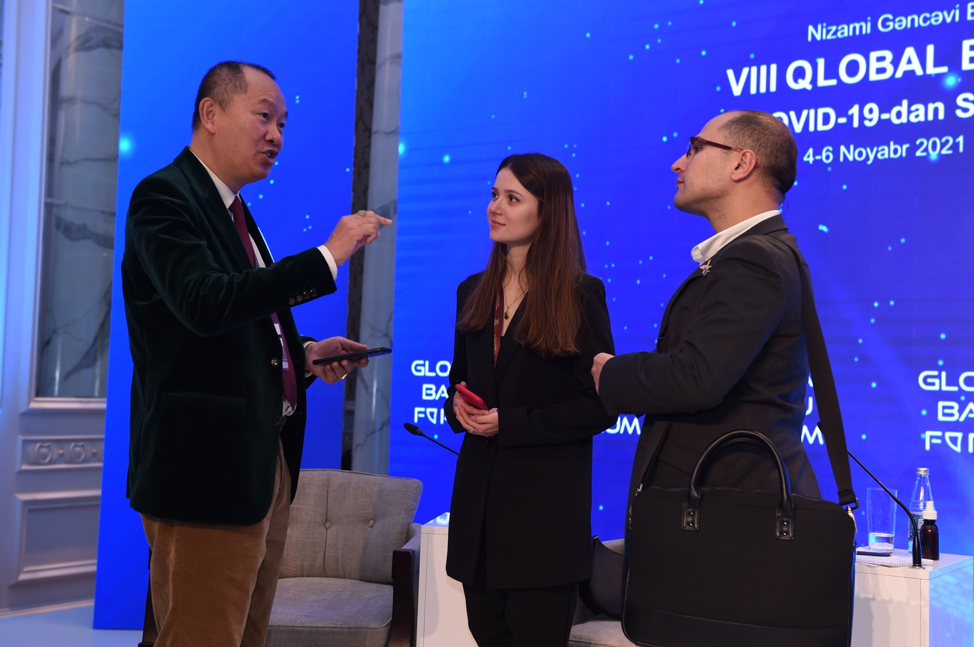
by Editor | Nov 14, 2021 | News
Mr. Nguyen Anh Tuan, CEO of the Boston Global Forum was a speaker at the Panel 11 “Future of EU on the Global Stage”, and met and discussed with young leaders and speakers at Panel 7, moderated by Kateryna Yushchenko, First Lady of Ukraine 2005-2010.
https://www.youtube.com/watch?v=O3E5asL2nqg&list=PLyYeX567_xhNGVrczQxs4gku89r0xdxVU&index=15
https://www.youtube.com/watch?v=DIX1uCSGLjg&list=PLyYeX567_xhNGVrczQxs4gku89r0xdxVU&index=9
Young leaders at 8th Global Baku Forum are very delighted to join the Young Leaders of Global Alliance for Digital Governance.
Here are some pictures of Mr. Nguyen Anh Tuan and young leader panel 7.






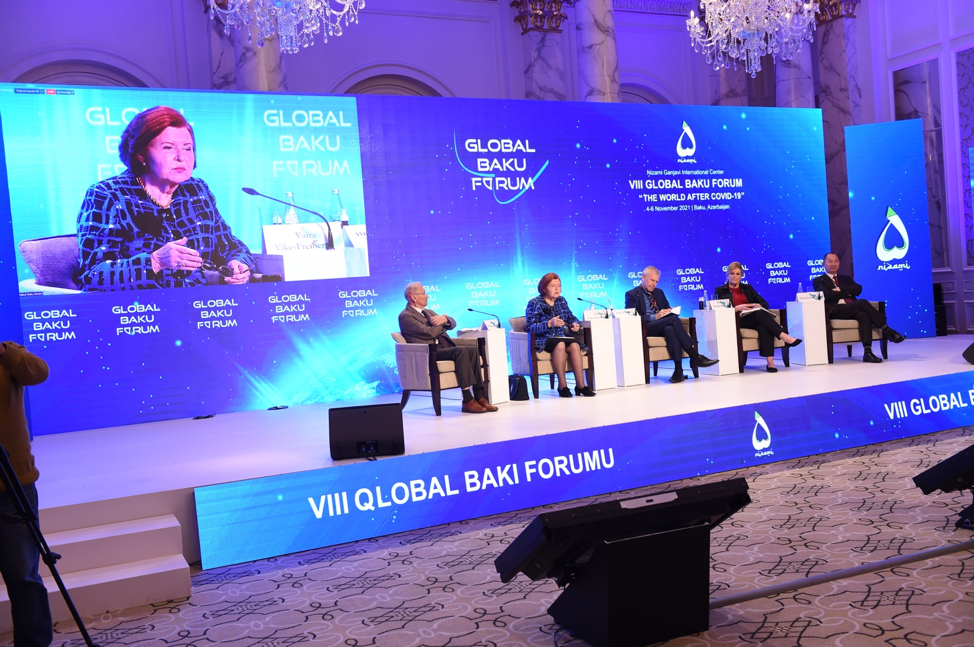
by Editor | Nov 14, 2021 | News
Sponsored by the World Leadership Alliance-Club de Madrid, the United Nations Centennial Initiative, the Boston Global Forum, the Michael Dukakis Institute for Leadership and Innovation, the Global Alliance for Digital Governance, the Government of Massachusetts, MIT Connection Science, and Cyber Politics at MIT, the Young Leaders of Global Alliance for Digital Governance will try to solve these six problems of the world:
- Misinformation, Disinformation, and Global Enlightenment Education
- Value System and Innovation Ecosystem of AI World Society (AIWS)
- Building trust of leaders between nations
- Fundamentals for new international cooperation on the basis of standards of the Social Contract for the AI Age
- Controlling and monitoring state power in the digital age and AI
- Tackling challenges, threats, and dangers from Big Tech
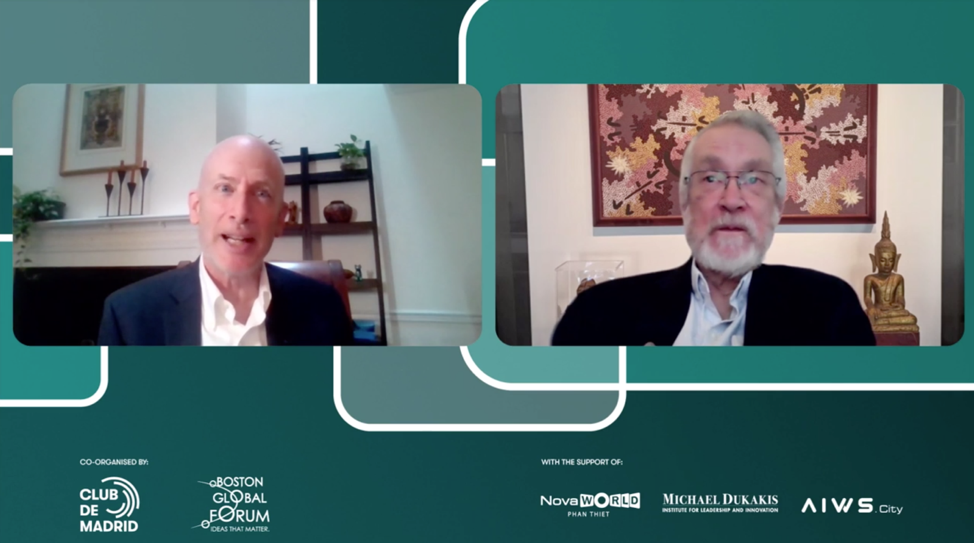
by Editor | Nov 14, 2021 | News
In the article from Foreign Policy https://foreignpolicy.com/2021/11/08/big-tech-wont-remake-the-global-order/, Stephen M. Walt, a columnist at Foreign Policy and the Robert and Renée Belfer professor of international relations at Harvard University, highlighted:
If you had to bet on which will shape the future, the smart money would be on states over technology.
Why states will win
For all their shortcomings, states remain the dominant political form in the world today. The number of independent states has grown steadily since 1945 because different ethnic or national groups continue to crave the security and autonomy that only self-government can provide. (If you don’t understand why groups want their own state, just ask Kurds or Palestinians what life is like without one.) Some states do not protect their own populations very well, but most states do a fair job of providing basic security most of the time. And when emergencies arise—9/11, the 2008 financial crisis, a catastrophic weather event—people don’t call Tim Cook or Sergey Brin to fix the problem; they turn to the government.
Even today, corporations, banks, NGOs, and Big Tech are all ultimately backstopped by rules enacted and enforced by governments. If corporations enjoy certain privileges (such as limited liability, legal personhood, or the protection of Section 230 of the U.S. Communications Decency Act), it is because governments have given these to them. When Huawei suddenly couldn’t get the chips it needed, it was because a government decided to block these sales. States also control the ultimate weapon: the legitimate use of force. It is states that decides when and whom to fight, and when they do, citizens in nearly every country willingly march into harm’s way.
Professor Alex Sandy Pentland, MIT, co-author of Remaking the World – Toward an Age of Global Enlightenment, commented:
“It’s a false dichotomy, both states and tech are reshaping world order…just as happened with guns, banking, etc. tech is changing wealth and ability to sense and act; some states are seizing that for their purposes…but so are non-state actors Including terrorists, trade companies, and financial institutions.
China would not be nearly so important on world stage without dominance in tech, and could not govern so completely without it”
BGF invites you to debate on this topic.
Please send your comments to [email protected]
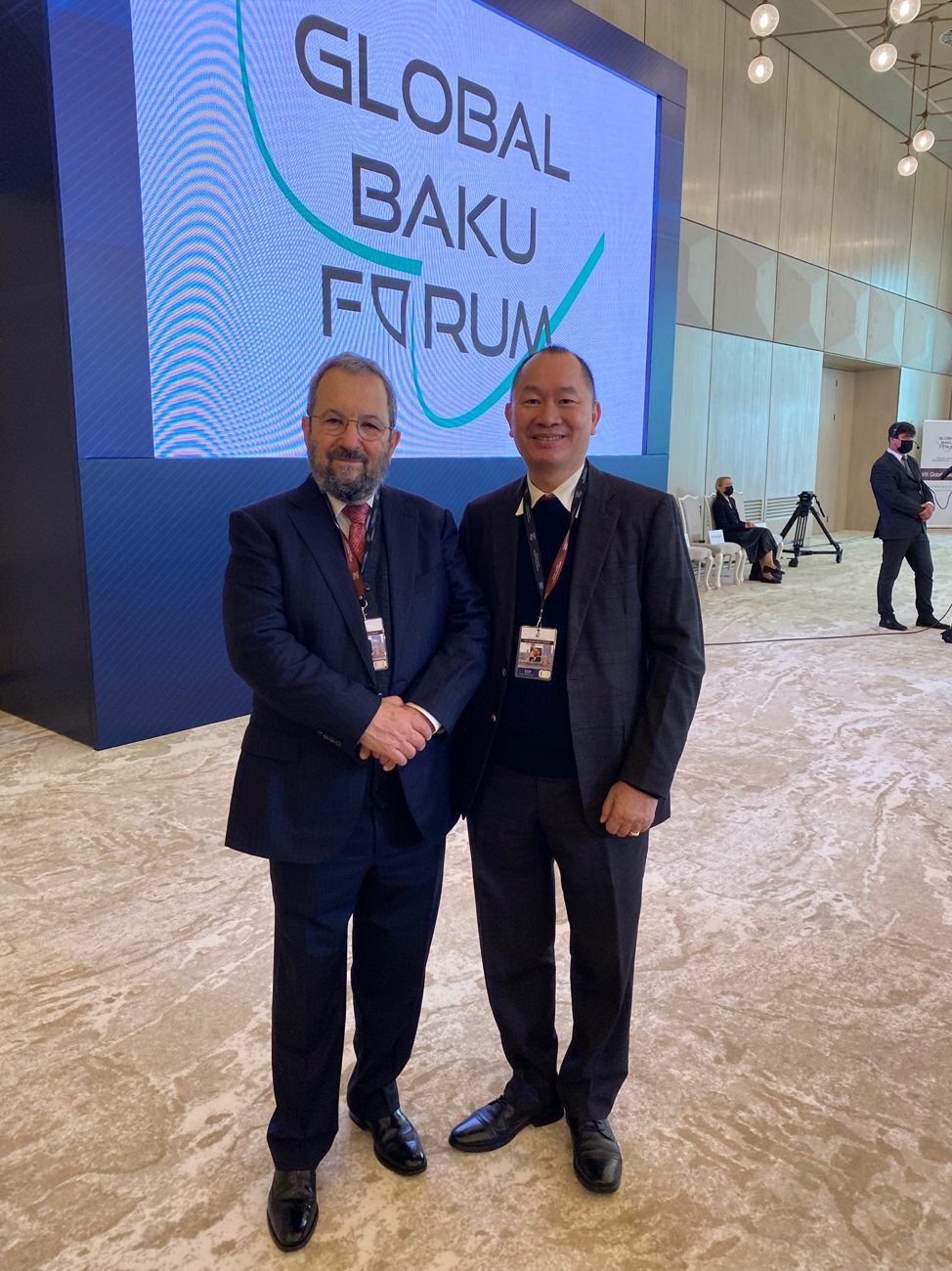
by Editor | Nov 7, 2021 | News
Global Alliance for Digital Governance has established a young leader network for digital governance. Global Enlightenment Leaders, who will mentor and support young leaders, include:
Governor Michael Dukakis, Chair of Michael Dukakis Institute for Leadership and Innovation
Vaira Vike-Freiberga, Co-Chair, NGIC; President of Latvia 1999-2007
Ehud Barak, Prime Minister of Israel 1999-2001
Dalia Itzik, President of Israel 2007, President of Knesset 2006-2009
Zlatko Lagumdzija, Prime Minister of Bosnia and Herzegovina 2001-2002; deputy Prime Minister of Bosnia and Herzegovina 2012-2015
Yves Leterme, Prime Minister of Belgium 2008, 2009-2011
Kolinda Grabar-Kitarovic, President of Croatia 2015-2020
Petre Roman, Prime Minister of Romania 1989-1991
Viktor Yushchenko, President of Ukraine 2005-2010
Boris Tadic, President of Serbia 2004-2012
Tzipi Livni, Minister of Foreign Affairs of Israel 2006-2009
Ana Palacio, Minister of Foreign Affairs of Spain 2002-2004
Gennady Burbulis, First Deputy Prime Minister to the Russian Federation 1991-1992, State Secretary
Eka Tkeshelashvili, Deputy Prime Minister of Georgia 2010-2012
Kateryna Yushchenko, First Lady of Ukraine 2005-2010
Maria Fernanda Espinos, 73rd President of the UN General Assembly; Minister of Foreign Affairs of Ecuador 2017-2018; Minister of Defense 2012-2014
Lazar Comanescu, Minister of Foreign Affairs of Romania 2008, 2015-2017; Secretary General of the Permanent International Secretariat (PERMIS) of the Organization of the Black Sea Economic Cooperation (BSEC)
Mats Karlsson, Former Vice-President of the World Bank
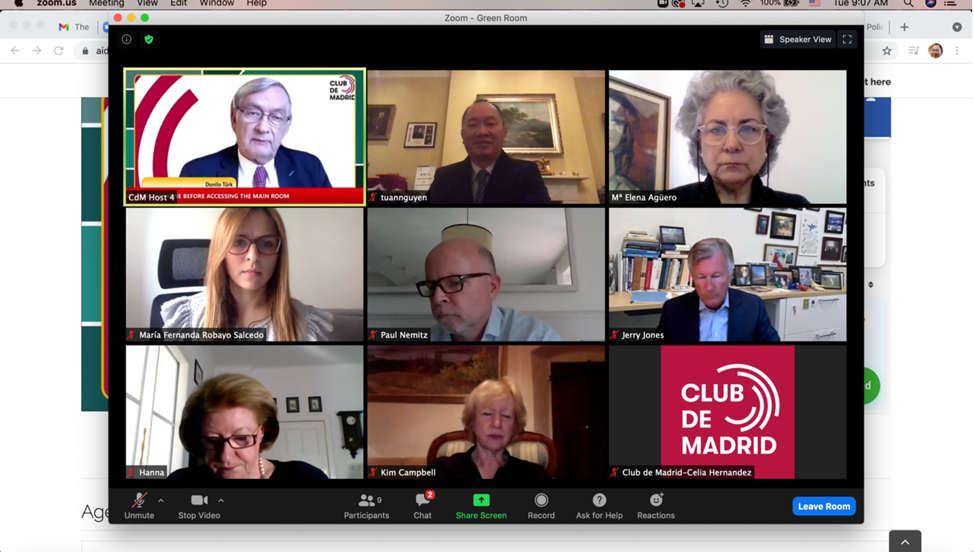
by Editor | Nov 7, 2021 | News
On this, the Twentieth anniversary of its foundational conference, Club de Madrid wants to mobilise a critical mass of support to discuss, define and advocate a much-needed Democratic Renewal.
During the next three days, experienced political leaders and thinkers, as well as practitioners and civil society leaders from around the world will gather to identify good practices and innovative ideas that will help us in the task of crafting actionable recommendations, with the objective of rebooting old and new democracies alike.
This 2021 Annual Policy Dialogue aims to facilitate, promote and support a set of recommendations aimed at protecting, preserving and revitalising a kind of democracy that will prove effective for democratic actors at a global and national scale. In this process, we have focused our preparatory work on three specific challenges, considered key in rethinking democracy today: the new information ecosystem, responsible leadership, and resilient institutions.
For this purpose, we have established a network of partners, nearly 50 organizations of diverse nature and from all over the world, but all committed to strengthening contemporary democracy. They are like-minded organizations, institutions and individuals that have contributed to the content development of this Policy Dialogue.
But the Policy Dialogue we are starting today is only one step in an important process. We hope to continue working with all of you taking these recommendations forward as we seek impact and positive change to strengthen democratic values and practice.
Let me highlight that, in coordination with our network of partners and with the guidance and insights of our three Working Groups Leaders we have produced a set of position papers that will serve as the basis of our discussion in this Policy Dialogue. These papers are available in our platform.
The first Working Group is focused on the New Information Ecosystem and on how to reconcile truth, trust, and freedom of expression in today’s democracies.
The Second Working Group centered its work on Responsible Leadership and Democracy from the perspective of values and accountability.
The third and last Working Group focused on the issue of Resilient Institutions for Resilient Democracies
This 2021 Annual Policy Dialogue is not taking place in a vacuum. Our reflections on Rethinking Democracy are necessarily colored by the particular context of the COVID-19 pandemic. While some of us may be beginning to feel that the worst is behind us, millions of people, many of them in democratic countries, are still struggling with the threat the virus has been posing to lives and livelihoods for over 18 months.
Earnest and resolute reflection on democracy is critical at present, as it is regarding our ability to build back, or forward, better after the pandemic. Building back better requires policies that will address the existential challenges of our time, such as the risks and the opportunities that digital transformation brings to protect fundamental rights. Without their protection and promotion, we cannot build healthy democracies.
Club de Madrid and the Boston Global Forum (BGF) have been working for a few years on the potential of digitalization as a driver of democracy and multilateralism. A better world after COVID 19 pandemic will have to be a rights-based digitalized world. And it will have to be organized multilaterally. In this context, a global norm-setting initiative is imperative to put technology at the service of people.
We will continue working to contribute to global consensus-building around a democratic, rights-based agenda for the governance of Artificial Intelligence and digital societies. Our efforts will feed into the work of the Boston Global Forum AI World Society and its initiative on “Remaking the World – Toward an Age of Global Enlightenment”, which will continue to develop and promote a Social Contract for the AI Age as well as an AI International Accord.
We will feed into these efforts by combining policy proposals on fundamental rights in the age of AI and issues-based policy discussions around specific areas where digital technologies and AI are being deployed to achieve democratic rights-based governance of AI and digital societies.















